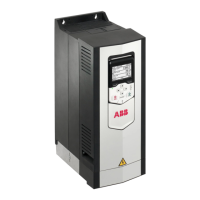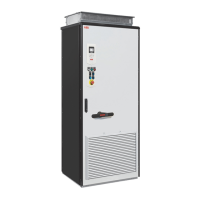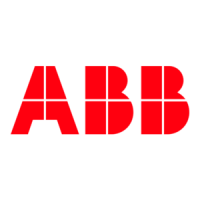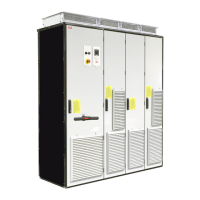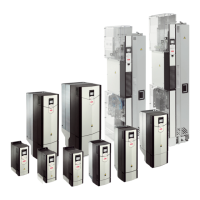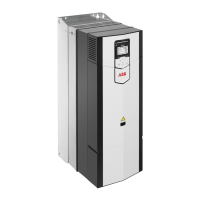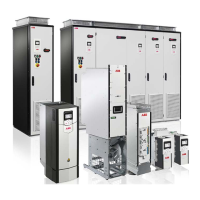A double-shielded cable (a) is the best alternative for low-voltage digital signals, but
single-shielded (b) twisted pair cable is also acceptable.
■
Signals in separate cables
Run analog and digital signals in separate, shielded cables. Do not mix 24 V DC and
115/230 V AC signals in the same cable.
■
Signals that can be run in the same cable
If their voltage does not exceed 48 V, relay-controlled signals can be run in the same
cables as digital input signals. The relay-controlled signals should be run as twisted
pairs.
■
Relay cable
The cable type with braided metallic shield (for example ÖLFLEX by LAPPKABEL,
Germany) has been tested and approved by ABB.
■
Control panel to drive cable
Use EIA-485, Cat 5e (or better) cable with male RJ-45 connectors. The maximum length
of the cable is 100 m (328 ft).
■
PC tool cable
Connect the Drive Composer PC tool to the drive through the USB port of the control
panel. Use a USB Type A (PC) - Type Mini-B (control panel) cable. The maximum length
of the cable is 3 m (9.8 ft).
Routing the cables
■
General guidelines – IEC
• Route the motor cable away from other cables. Motor cables of several drives can
be run in parallel installed next to each other.
• Install the motor cable, input power cable and control cables on separate trays.
• Avoid long parallel runs of motor cables with other cables.
• Where control cables must cross power cables, make sure that they are arranged
at an angle as near to 90 degrees as possible.
• Do not run extra cables through the drive.
• Make sure that the cable trays have good electrical bonding to each other and to
the grounding electrodes. Aluminum tray systems can be used to improve local
equalizing of potential.
Guidelines for planning the electrical installation 105
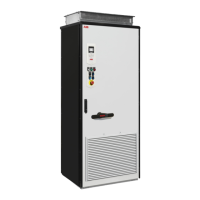
